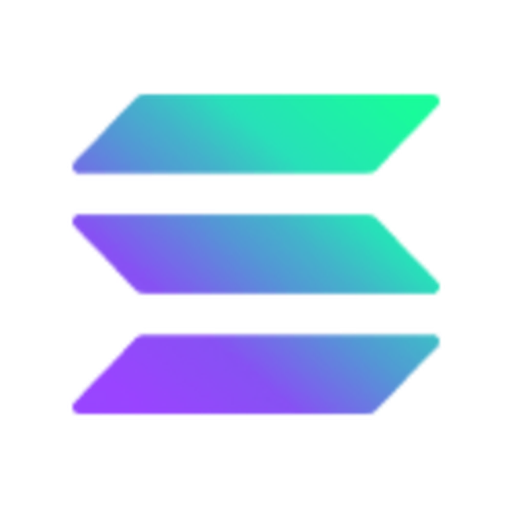Solana vs Zircuit – Price, Market Cap & Performance Compared
Which coin performs better – Solana or Zircuit?
We compare the current price (211.95 $ vs 0.04653 $), market cap (115 139 188 576 vs 101 959 743) and all-time high (293.31 vs 0.09726).
Find out which one stands out right now!
Solana is currently trading at 211.95 $, while Zircuit stands at 0.04653 $. These cryptocurrencies differ not only in price but also in market presence.
The market cap of Solana is around 115 139 188 576, and Zircuit has about 101 959 743. Their respective all-time highs are 293.31 for Solana and 0.09726 for Zircuit.
Daily trading volume and the 24h price change (-1.06296 % vs 10.41273 %) also offer key insights.
Compare all metrics now and see which coin fits your investment strategy best!
Solana
Solana is an advanced blockchain platform that has quickly gained traction due to its high-speed and low-cost transactions. Its architecture is designed to handle thousands of transactions per second, which positions it as a strong competitor in the decentralized finance space. As developers continue to build on its network, Solana is poised to support a diverse range of applications, making it a significant player in the cryptocurrency ecosystem.
more informationZircuit
Zircuit is an innovative cryptocurrency that aims to streamline transactions within the digital economy, promoting efficiency and user accessibility. Its unique decentralized framework enhances security and enables seamless cross-border exchanges, making it a popular choice among traders and investors. As Zircuit continues to develop its ecosystem, it positions itself as a key player in the evolving landscape of blockchain technology.
more information

|

|
|
|
|
General Information |
|
|---|---|
|
Title
Solana
|
Title
Zircuit
|
|
Symbol
sol
|
Symbol
zrc
|
|
Whitepaper
-
|
Whitepaper
|
|
Website
|
Website
|
|
Community
-
|
Community
-
|
|
Last Updated
2025-09-24 23:29
|
Last Updated
2025-07-25 07:59
|
Price Data |
|
|---|---|
|
Current Price $
211.95 $
|
Current Price $
0.04653 $
|
|
High 24h
216.29 $
|
High 24h
0.04953 $
|
|
Low 24h
206.33 $
|
Low 24h
0.03246 $
|
|
Price Change 24h
-2.27718 $
|
Price Change 24h
0.00439 $
|
|
Price Change % 24h
-1.06296 %
|
Price Change % 24h
10.41273 %
|
Market Data |
|
|---|---|
|
Market Cap
115 139 188 576
|
Market Cap
101 959 743
|
|
Total Volume
8 426 373 441
|
Total Volume
230 972 441
|
|
Market Cap Change 24h
-1 726 644 361
|
Market Cap Change 24h
9 337 048
|
|
Market Cap Change % 24h
-1.47746 %
|
Market Cap Change % 24h
10.08073 %
|
|
Return on Investment (ROI)
-
|
Return on Investment (ROI)
-
|
Supply and Availability |
|
|---|---|
|
Circulating Supply
543 390 185
|
Circulating Supply
2 194 923 458
|
|
Total Supply
610 459 596
|
Total Supply
10 000 000 000
|
|
Max Supply
-
|
Max Supply
10 000 000 000
|
Historical Data |
|
|---|---|
|
All Time High (ATH)
293.31
|
All Time High (ATH)
0.09726
|
|
ATH Change %
-27.78745 %
|
ATH Change %
-51.55309 %
|
|
ATH Date
2025-01-19 11:15
|
ATH Date
2024-11-25 10:56
|
|
All Time Low (ATL)
0.50080
|
All Time Low (ATL)
0.01950
|
|
ATL Change %
42 194 %
|
ATL Change %
141.66032 %
|
|
ATL Date
2020-05-11 19:35
|
ATL Date
2025-06-27 18:52
|
Solana
The Rise of Solana: A Deep Dive into the Blockchain Superstar
Solana (SOL) has emerged as one of the most prominent blockchain platforms in recent years, showcasing impressive growth and technological advancements. Known for its high-speed transactions and low fees, Solana has become a favorite among developers and investors alike. This article aims to explore the unique features of Solana, its historical performance, as well as its future prospects.
Key Features Setting Solana Apart
Solana's key selling point is its ability to process transactions at lightning speed compared to other blockchains. It utilizes a unique consensus mechanism known as Proof of History (PoH), which enables the network to handle thousands of transactions per second (TPS), a feat unmatched by many other blockchains. This innovation allows for scalability without compromising on speed or cost, making Solana an attractive option for decentralized applications (DApps) and decentralized finance (DeFi) projects. Additionally, the low fee structure further enhances its appeal in the crypto space.
Advantages of Solana
One of the main advantages of Solana is its scalability. As the demand for blockchain technology grows, the need for scalable solutions becomes more critical. Solana's architecture allows for rapid scaling, positioning it as a robust platform for future expansion. Furthermore, Solana boasts an active developer community that continuously contributes to its ecosystem, resulting in a diverse range of applications and services being built on the network. The high throughput and low transaction costs make it an ideal environment for developers, encouraging innovation across various sectors.
Challenges and Criticisms
No technology comes without its set of challenges, and Solana is no exception. One of the criticism often aimed at Solana is its level of decentralization. Critics argue that the network's reliance on a limited set of validators potentially undermines its decentralized ethos. Additionally, like other emerging technologies, Solana faced network outages in the past, raising concerns about its reliability and stability during high-stress periods of network activity.
A Look Back: Solana's Historical Performance
Solana's journey began in 2020 when it was introduced to the crypto world. Its price hit an all-time low (ATL) of $0.500801 in May 2020. The blockchain quickly garnered attention, and by November 2021, it reached an all-time high (ATH) of $259.96. Solana's price movements during these years reflect the broader market sentiment and growing interest in scalable blockchain solutions. Despite experiencing significant market volatility, including a notable price correction from its ATH, Solana has maintained a strong market presence.
Future Prospects of Solana
As we look to the future, Solana's prospects seem promising. Its growing ecosystem, coupled with continuous technological improvements, positions it well to capture a significant share of the blockchain market. The platform's focus on scalability and efficiency will likely drive more developers and projects to choose Solana as their preferred blockchain network. Furthermore, ongoing partnerships and integrations suggest a positive trajectory for Solana, allowing it to compete with other major blockchains in the years to come.
In conclusion, Solana represents a significant development in the crypto landscape, distinguished by its speed, scalability, and low-cost transactions. While the network faces inherent challenges that accompany any young and rapidly growing technology, the potential for innovation and adoption remains substantial. As Solana continues to evolve, it will undoubtedly be a crypto story worth following closely.
Zircuit
Overview of Zircuit: A Promising Contender in the Crypto Space
Zircuit (ZRC) is a cryptocurrency that has garnered attention due to its unique features and the potential it holds for both investors and users. As the digital currency space continues to evolve, Zircuit seeks to carve out its niche with innovative solutions aimed at improving user experience in various applications. In this article, we will explore the past performance of Zircuit, evaluate its strengths and weaknesses, and consider what the future may hold for this cryptocurrency.
Historical Performance: A Look Back
Zircuit has experienced notable fluctuations since its inception. Currently priced at $0.084167, it reached its all-time high (ATH) of $0.09726 on November 25, 2024, which has led to a decline of about 13.36% from that peak. The all-time low (ATL) stands at $0.057938, marking an impressive recovery of approximately 45.44% since reaching that point. These price movements reflect the volatility typical in the cryptocurrency market, underscoring the potential for both rapid gains and steep losses.
Advantages of Zircuit
One of the significant advantages of Zircuit is its market capitalization, which currently sits at approximately $184.8 million, alongside a total volume of $146.1 million. This suggests a solid level of trading activity and potential liquidity for investors. Zircuit has also been developed with a focus on providing usability across various platforms, enhancing its appeal to a broader audience.
Moreover, the project's whitepaper outlines a clear vision for the future, detailing innovative applications that can leverage the ZRC token. These projects aim to create an ecosystem of services that can add tangible value to users, ultimately driving demand for the coin.
Challenges Faced by Zircuit
Despite its potential, Zircuit faces several challenges that could impact its future growth. One such challenge is the stiff competition from other cryptocurrencies that provide similar utility and innovation. As the market becomes increasingly saturated, standing out and attracting users can be a significant hurdle.
Additionally, the cryptocurrency market is prone to regulatory scrutiny, which can affect trading volumes and investor confidence. Zircuit must navigate this landscape carefully to avoid pitfalls that have impacted other projects in the past.
The Future Outlook for Zircuit
Looking ahead, Zircuit presents an interesting investment opportunity. Given its potential for recovery from recent lows and a solid market foundation, investors may find it beneficial to keep an eye on its developments. Continuous enhancements in its technology and user engagement strategies could propel Zircuit to a higher plateau in the cryptocurrency ecosystem.
As Zircuit works to execute its roadmap and expand its applications, it could capitalize on growing trends in decentralized finance (DeFi) and other blockchain-based services. This adaptability will be crucial for ensuring its longevity and relevance within the market.
Conclusion: A Coin to Watch
In summary, Zircuit (ZRC) is an intriguing player in the cryptocurrency arena with a promising outlook. While it faces its fair share of challenges, its advantages, particularly its market positioning and innovative roadmap, may well place it in a favorable position for future growth. Investors considering Zircuit should conduct thorough research and remain attuned to market developments that could influence its trajectory.
For more information, the Zircuit whitepaper can be accessed [here](https://docs.zircuit.com/) and the main website can be visited at [Zircuit](https://www.zircuit.com/).

